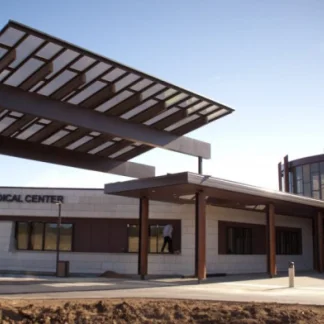Marimn Health Benewah Medical Center
Plummer, Idaho, 427 North 12th street, 83851
Available Programs
- Adolescence program
- Adult program
- HIV/AIDS program
- LGBTQ program
- Military program
- Postpartum program
- Program for men
- Program for women
- Young adult program
Insurance and Financial
- Medicaid
- Private insurance
- Self-pay options
- Financial aid
- Sliding scale payment assistance
- Medicare
- Military insurance
About this Facility
Marimn Health Benewah Medical Center provides low-cost mental and behavioral health care in Plummer, Idaho. They offer outpatient care for clients of all ages.
Treatment options at Marimn Health Benewah Medical Center include intensive outpatient programs (IOP), general outpatient programs (OP), and aftercare services. Specialized services are available for children, adolescents, young adults, military personnel and veterans, LGBTQ+ persons, and persons with co-occurring disorders.
The intensive outpatient programs (IOP) ensure high-level supervision and support for clients in early recovery, those stepping down from inpatient treatment, and those at an elevated risk of relapse. Clients receive medical and mental health assessments, drug and alcohol screenings, personalized care planning, and comprehensive case management. They also engage in intensive, trauma-informed individual, group, and family counseling drawing on proven psychotherapeutic modalities. The program promotes clients’ sustained sobriety through robust, age-specific, recovery-focused life-skills training. Topics include coping, self-care, emotional regulation, wellness, anger and stress management, and relapse prevention.
The general outpatient program (OP) and aftercare services ensure a complete continuum of care aligned with clients’ evolving needs. These services may include transitional support for clients moving from higher-intensity treatment, 12-Step program facilitation, academic and vocational training, employment and housing assistance, and referrals for medical, mental health, and social service programs.
Marimn Health Benewah Medical Center is state licensed and accredited by CARF. They accept private insurance, military insurance, Medicare, Medicaid, sliding-scale payment schedules, and self-pay. Financial aid is available.
Contact us for more information: (208) 686-1449

Contact Marimn Health Benewah Medical Center
Connect with Marimn Health Benewah Medical Center by calling their admissions team directly.
(208) 686-1449 Website Get Directions